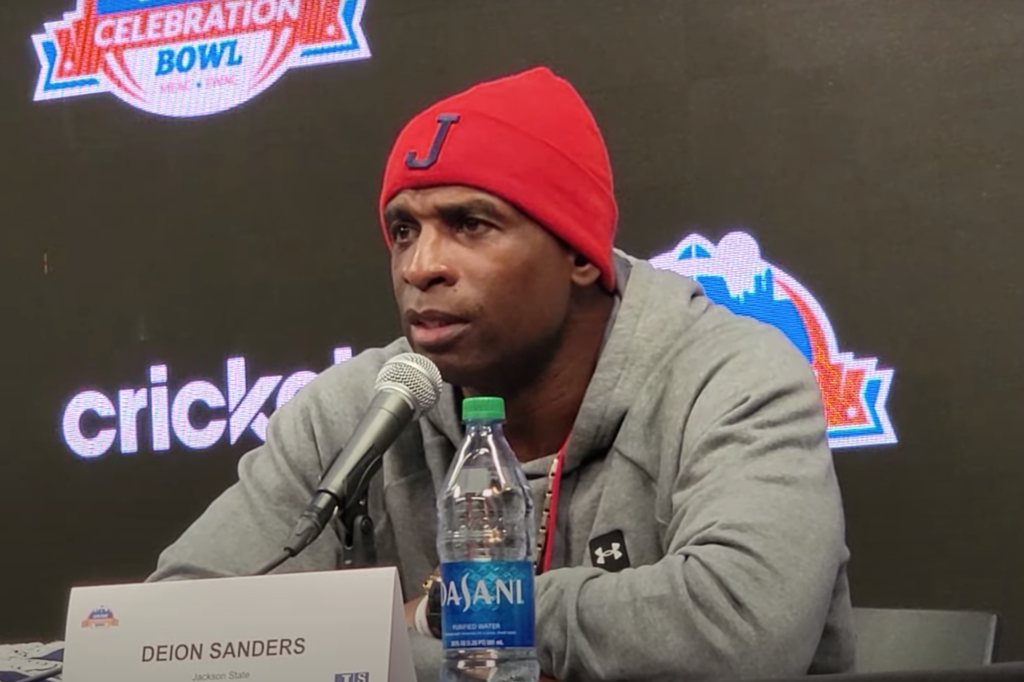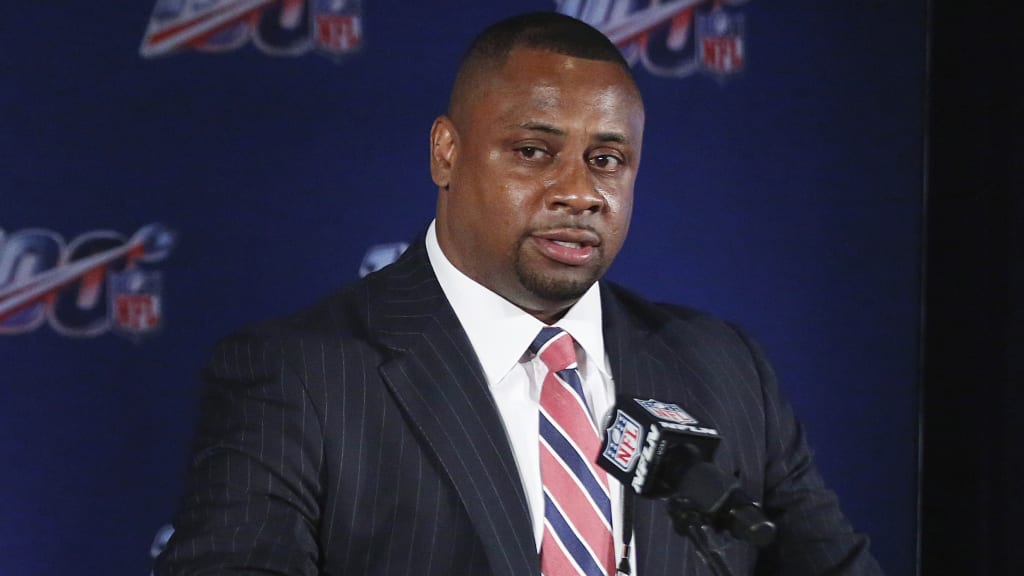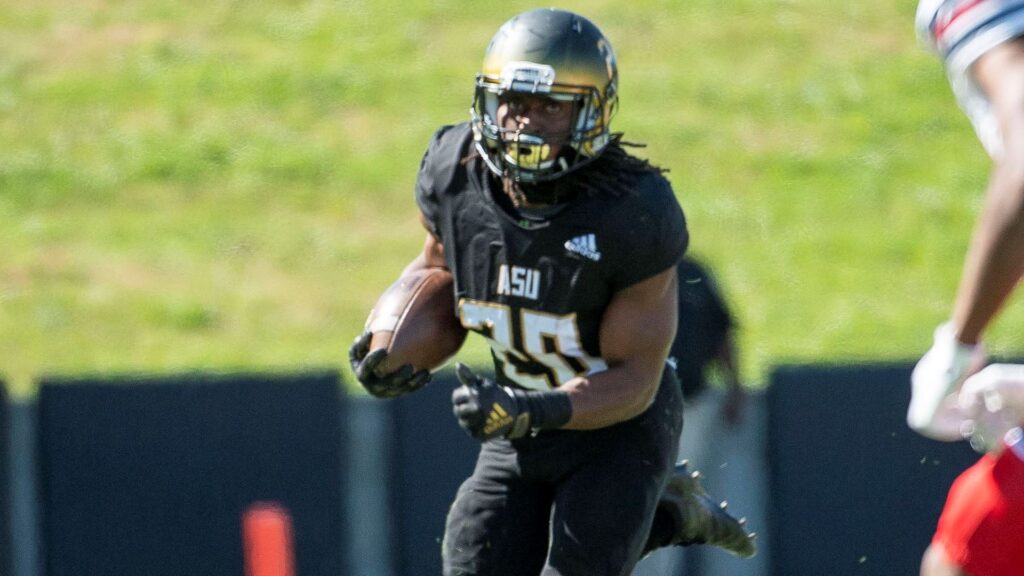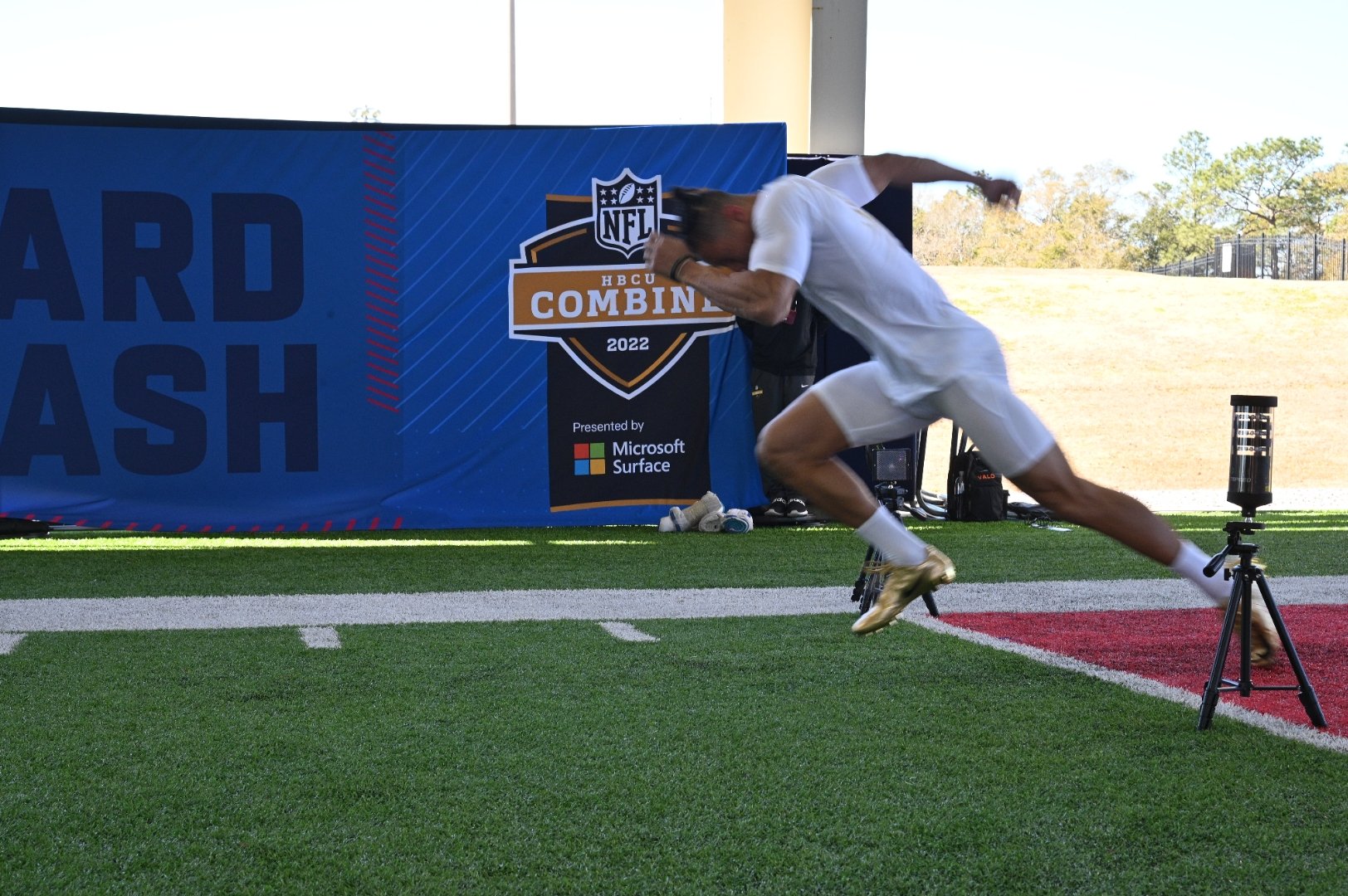Leading up to the 2022 NFL Draft, Deion Sanders — the exuberant Jackson State head coach — is front and center in what is a corporate-sponsored public service announcement campaign.
Sanders, one of the all-time adoring professional pitchmen, is selling a particular audience something. But it’s not a sports drink, luxury vehicle, or even insurance.
No, the prospective consumer is not the public. It’s NFL teams. The product, in this case, is HBCU football players.
Sanders, who has an endorsement deal with Aflac, teamed up with the company to promote so-called “Prime Prospects” that have included the likes of Aqeel Glass (Alabama A&M), Dee Anderson (Alabama A&M), and Marcus McClain (Southern) to “help close the gap and create real change by giving (HBCU) players the attention they deserve,” according to language that accompanies the advertisement.
The first round of the 2022 NFL draft kicks off in Las Vegas on Thursday at 8 p.m. ET and rounds 2-7 will follow on Friday and Saturday.
For seemingly the last calendar year, there has been a noticeable movement from stakeholders inside Black college football circles to the upper reaches of the NFL itself to correct what has been considered an unsettling trend. Only one player representing an HBCU was selected among the 514 combined picks spanning the last two drafts.
In 2021, there were none. Not since 2009 had that occurred.
The development resulted in a firestorm of criticism directed toward the NFL and its player evaluation system that — in the opinion of Sanders, ex-Grambling State head coach Broderick Fobbs and Howard coach Larry Scott among others — had unceremoniously abandoned HBCU football talent.

“Definitely, that is something that has to change,” Scott said last May. “I just think the continued awareness and continued cameras following and watching, leveling the playing field and giving the same opportunities to players that are from HBCUs has to continue, it has to pick up.”
‘We could do more for our athletes’
Football coaches were not the only group engaged in soul searching as it related to a lack of opportunities for Black college players.
Troy Vincent, the NFL’s executive vice president of football operations, was also troubled. A five-time Pro Bowl player during a 16-year NFL career, Vincent himself stated that the league “must accelerate our efforts for HBCU players to make the transition to the NFL.”
And he had big-name support igniting interest in the crusade.
Vincent told HBCU Sports in recent a phone interview that Pro Football Hall of Famer Willie Lanier and four-time Super Bowl champion Ronnie Lott reached out to surmise what could be done to elevate HBCU players into the NFL.
“They called me and said, ‘We could do more. We could do more for our athletes,'” said Vincent, whose family members have HBCU ties.”That’s when it started — it was a phone call from Willie Lanier and Ronnie Lott.
“Ronnie Lott is from USC but he understood the importance of historically Black colleges and universities. He understood the students having true opportunities and getting the right amount of exposure to see if they can make it in the big leagues.”
That conversation between NFL legends soon turned into definitive action.
Led by Vincent and others, the league studied how NFL teams scouted HBCUs following the 2021 draft. What was found is that there were not enough eyes evaluating players.

A league-backed scouting committee was instituted to help identify the top 150 draft-eligible HBCU players. The four longstanding Black college football conferences — CIAA, MEAC, SIAC, and SWAC — were added to the NFL video exchange program, which provides all 32 teams with a database of college game film.
That meant all clubs could have access to tape of players like Florida A&M stud defensive back Markquese Bell, Jackson State defensive menace James Houston, South Carolina State All-MEAC star Decobie Durant, and Virginia State cornerback Will Adams.
The ‘intentional’ exposure of HBCU football players
Those efforts didn’t stop there.
The NFL hosted the first HBCU Combine in Mobile, Alabama which featured 38 players representing 22 schools in conjunction with the Senior Bowl.
The NFL partnered with the Black College Football Hall of Fame for the Legacy Bowl, an all-star game in New Orleans held a week after the Super Bowl for prospects from HBCUs. The game was the brainchild of former Grambling State quarterbacks James “Shack” Harris and Doug Williams.
The league also encouraged the Senior Bowl and East-West Shrine Bowl to extend invitations to HBCU prospects. Several HBCU players also were part of the NFLPA Collegiate Bowl.
Steve Wyche, a Howard alum, is a veteran pro football reporter and current correspondent for NFL Network. He described the situation as “frustrating” that HBCU football players did not garner the same respect as FBS players.
“It was super intentional to expose the players,” said Wyche, who was on the Legacy Bowl broadcast team and assisted with the creation of the event. “It was super intentional to get teams to pay more attention to players from HBCUs. It was a passionate cause of people like Troy Vincent and Doug Williams and Shack Harris to say we’re still here.”
Exposure for the athletes, said Wyche, went beyond the field of play. Prior to the draft, NFL Network featured multiple HBCU draft-eligible players on its platform to give fans and teams insight into their personalities and backgrounds on a stage not historically afforded to small school athletes.
“We’ve made a concerted effort as well to showcase these guys to get some of these guys the exposure they need,” he said.
HBCUs feature next-level talent
Alabama State running back Ezra Gray was one of the many players who received that coveted exposure during the pre-draft process.
Gray, a three-time FCS All-American and All-SWAC running back tallied 1,875 yards on the ground and 256 receiving yards in his four seasons at Alabama State.
He participated in the HBCU version of the combine, and was appreciative of the feedback from NFL teams and the opportunity to be treated “like first-class players.”

The NFL hopeful credited not only the work of those who put together the combine but the visibility brought on by the shortened spring 2021 season that placed HBCU football on the national stage during a period when there were few games being played because of the COVID-19 pandemic.
Also read: Deion Sanders called out NFL teams that missed Jackson State’s pro day. Scouts provide reasons
“You don’t really know how good these teams are until you see them play,” Gray told HBCU Sports. “I think scouts took a look at a lot of the different athletes and got to see skills that could translate. I will say that we had a lot of HBCU guys here that could play at the next level.”
Optimism of NFL draft breakthrough
Jim Nagy, a longtime scout and executive director of the Senior Bowl, doesn’t invite a draft-eligible college player to the week-long event if that player isn’t projected to be taken within at least the first five rounds.
Southern offensive lineman Ja’Tyre Carter and Fayetteville State defensive back Joshua Williams were the lone HBCU representatives to make the cut.
Nagy was part of the brigade that helped orchestrate the combine specifically for Black college players and expressed that one-on-one interviews with teams were just as important as on-field work for prospects. A bulk of them, he said, often do not have the chance to meet individually with franchises after the college season ends.
“I think there is a misperception that the NFL hadn’t been scouting these players — that couldn’t be further from the truth,” he said. “I think I’ve been on every HBCU college campus in the country. The problem isn’t that these guys don’t get looked at. The problem is the spring process — whether it be combines or pro days — that’s where they get less exposure.
“Trying to fill that hole in the pre-draft process was critical and why the HBCU Combine event was so important.”
There seems to be hope that HBCU draft-eligible players will be taken in a round at some point this weekend and many more being picked up via the undrafted free-agent route.
Draft analysts and scouts contacted by HBCU Sports suggested anywhere from a handful to an ambitious double-digit figure could hear their names called in Las Vegas.
Nagy is optimistic all the exposure will result in a shift in fortune for historically Black college players.
“We’ll see,” he said. “Hopefully it makes a difference. We will see shortly. Hopefully, it is a step in the right direction.”







